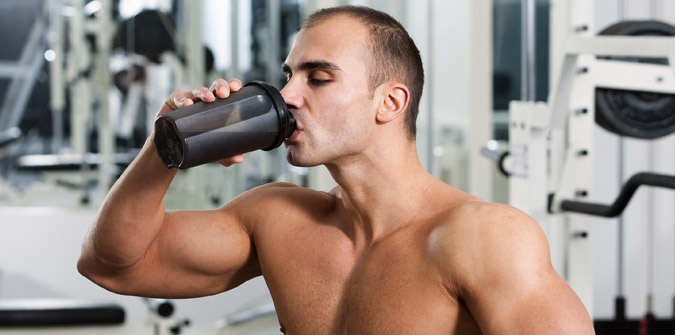Maximising Muscle Building: A Guide to Supplements
Effective Muscle Building for Athletes
We understand the importance of lean body mass and effective muscle building for our athletes. This article explores the benefits of protein supplements, focusing on whey, casein, and soya protein, along with the role of creatine in enhancing muscle gains and strength.
Protein Supplements for Enhanced Performance
Studies reveal that athletes, especially those with high energy demands, benefit from protein intake ranging between 1.2 to 2 grams per kilogram of body weight. While protein supplements have gained popularity, it's crucial to view them as a complement, not a substitute, to a well-planned diet.
Best Practices for Protein Consumption:
- Ideal timing is post-workout to leverage the hormonal response for muscle recovery.
- Combining protein with carbohydrates enhances nutrient absorption and refuels muscle carbohydrate stores.
- Combining protein with carbohydrates enhances nutrient absorption and refuels muscle carbohydrate stores.
Types of Protein Powder:
1. Whey Protein:
Extracted from milk, whey protein is easily digestible, containing all essential amino acids. It stimulates muscle growth by naturally increasing the body’s anabolic hormone production. Whey protein powders are popular for their quick absorption, delivering amino acids rapidly to the muscles.
*2. Casein:*
Another milk protein, casein, is absorbed more slowly than whey, making it ideal for sustained protein release. It contains glutamine, which acts as fuel during intense exercise, supporting muscle preservation. Casein-based protein powders are recommended for evening consumption to aid overnight recovery.
*3. Soya Protein:*
Derived from soya isolate with a higher protein content than soya milk, it provides key amino acids essential for muscle building. Soya protein is also rich in glutamine, contributing to overall muscle health.
Extracted from milk, whey protein is easily digestible, containing all essential amino acids. It stimulates muscle growth by naturally increasing the body’s anabolic hormone production. Whey protein powders are popular for their quick absorption, delivering amino acids rapidly to the muscles.
*2. Casein:*
Another milk protein, casein, is absorbed more slowly than whey, making it ideal for sustained protein release. It contains glutamine, which acts as fuel during intense exercise, supporting muscle preservation. Casein-based protein powders are recommended for evening consumption to aid overnight recovery.
*3. Soya Protein:*
Derived from soya isolate with a higher protein content than soya milk, it provides key amino acids essential for muscle building. Soya protein is also rich in glutamine, contributing to overall muscle health.
Creatine: Energising Muscle Performance
Creatine, a naturally occurring nutrient in the body, plays a crucial role in providing energy during quick explosive movements. Found in meat sources, creatine supplementation, particularly creatine monohydrate, benefits athletes engaged in short burst activities like soccer, rugby, sprinting, and weight training.
Key Benefits of Creatine Supplementation:
- Boosts muscle energy stores for quick bursts of energy.
- Speeds up recovery between high-intensity activities.
- Promotes muscle gains and strength, aiding recovery between repetitions.
- Buffers lactic acid in the muscles.
- Recent studies suggest its potential in carbohydrate loading for endurance athletes.
- Speeds up recovery between high-intensity activities.
- Promotes muscle gains and strength, aiding recovery between repetitions.
- Buffers lactic acid in the muscles.
- Recent studies suggest its potential in carbohydrate loading for endurance athletes.
Creatine Loading Protocols:
- Slow Loading: 3g per day for 28 days, minimising the likelihood of stomach upset.
- Acute Loading: 4 x 5g for 5 days, followed by a maintenance dose of 2g per day.
- Acute Loading: 4 x 5g for 5 days, followed by a maintenance dose of 2g per day.
Top Tips for Optimal Muscle Building
1. Protein supplements should complement, not replace, a well-planned diet.
2. Incorporate whey protein powder in recovery periods, paired with carbohydrate-based foods or drinks.
3. Creatine is beneficial for high-intensity activities like sprinting, soccer, and weight training.
4. Use creatine to aid recovery between sets and maximise muscle gains.
5. Consider creatine for sprint or interval training.
6. Explore the potential of creatine in carbohydrate loading for endurance athletes.
2. Incorporate whey protein powder in recovery periods, paired with carbohydrate-based foods or drinks.
3. Creatine is beneficial for high-intensity activities like sprinting, soccer, and weight training.
4. Use creatine to aid recovery between sets and maximise muscle gains.
5. Consider creatine for sprint or interval training.
6. Explore the potential of creatine in carbohydrate loading for endurance athletes.
By integrating high-quality protein supplements and creatine into a well-rounded fitness regimen, individuals can enhance muscle growth, strength, and overall athletic performance. Choose the best supplements for your goals and consult with a fitness professional for personalised advice.

